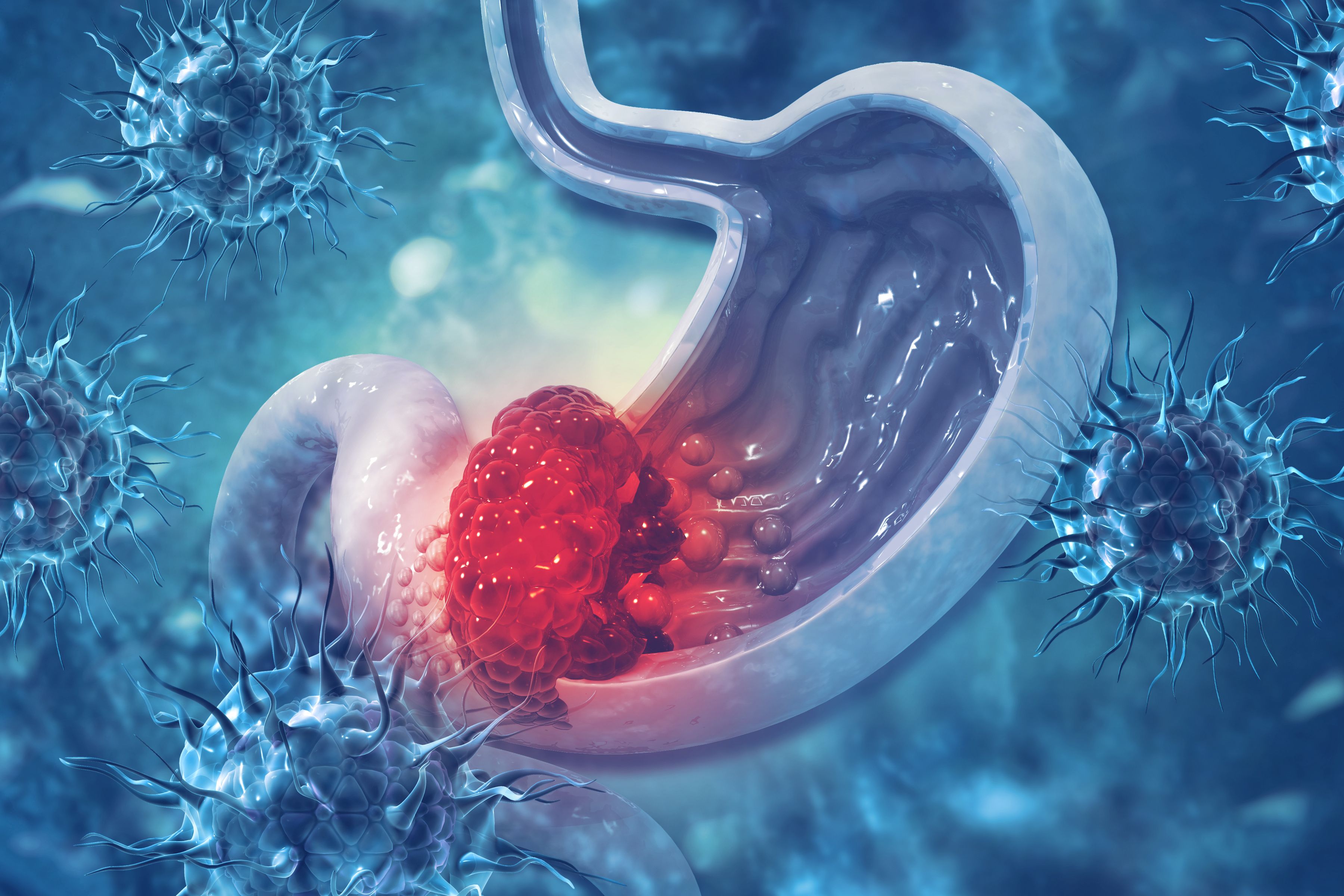- Bone Health
- Immunology
- Hematology
- Respiratory
- Dermatology
- Diabetes
- Gastroenterology
- Neurology
- Oncology
- Ophthalmology
- Rare Disease
- Rheumatology
Achieving PFS in Advanced Gastric Cancer With HLX02 Biosimilar, Chemotherapy
In a phase 2 study, the addition of HLX22, an anti-HER2 antibody, to HLX02 biosimilar and XELOX (oxaliplatin and capecitabine) chemotherapy extended progression-free survival (PFS) in untreated HER2-positive advanced gastric cancer patients.
In a phase 2 study, adding the novel anti-human epidermal growth factor receptor 2 (HER2) antibody HLX22 to the trastuzumab biosimilar HLX02 (Hercessi; Shanghai Henlius Biotech) and oxaliplatin and capecitabine (XELOX) chemotherapy prolonged progression-free survival (PFS) in patients with previously untreated HER2-positive locally advanced or metastatic gastric/gastroesophageal junction (G/GEJ) adenocarcinoma over 14 months of follow-up.
Image credit: Crystal light - stock.adobe.com

According to the investigators, G/GEJ cancer is often diagnosed at the advanced stage and has poor prognosis, and more effective treatments are needed. HER2-positive disease makes up approximately 12% and 23% of gastric cancer cases. Although previous research established that trastuzumab plus chemotherapy significantly improved overall survival (OS) compared with chemotherapy alone, the authors said that median overall survival “is still limited” with the addition of trastuzumab.
HLX22 is a monoclonal antibody targeting HER2. According to the authors, although HLX22 binds to the same domain of HER2 as trastuzumab, it acts on a different epitope, allowing the 2 to bind HER2 simultaneously. A phase 1 study of HLX22 monotherapy found antitumor activity against HER2-overexpressing advanced solid tumors after failure of or intolerance to standard therapies.
The current study randomized patients to receive HLX02 and XELOX plus placebo (n = 18), or HLX02 and XELOX plus 15 mg/kg HLX22 (n = 17), or 25 mg/kg HLX22 (n = 18) every 3 weeks. The primary endpoints were PFS and objective response rate (ORR) as assessed by an independent radiological review committee (IRRC). Baseline characteristics were “well balanced” between groups, the authors said.
The investigators reported median PFS was prolonged in both HLX22 groups. In the 25 mg/kg HLX22 group, median PFS was 15.1 months compared to 8.2 months in the placebo group (HR, 0.5; 95% CI, 0.17-0.27). In the 15 mg/kg HLX22 group, median PFS was not reached (HR, 0.1; 95% CI, 0.04-0.52 compared with placebo).
Confirmed ORR by IRRC was comparable between groups, the authors said, at 78% in the higher-dose HLX22 group, 82% in the lower-dose HLX22 group, and 89% in the placebo group. At week 48, ORR was higher in the 2 HLX22 groups (39% and 59%) compared to the placebo group (17%), “indicating that patients had more sustained tumor response when HLX22 was added to the treatment regimen,” the authors wrote. Disease control rates were 83% in the higher-dose HLX22 group, 94% in the lower-dose group, and 89% in the placebo group.
At the time of analysis, 15 patients (28%) had died, and median overall survival (OS) was not reached in any of the 3 treatment groups. Twelve-month OS rates were 82% in the higher-dose HLX22 group, 82% in the lower-dose HLX22 group, and 67% in the placebo group.
Almost all patients, more than 90%, experienced at least 1 treatment-emergent adverse event (TEAE). Grade 3 or higher TEAEs occurred in 72% of patients in the higher-dose HLX22 group, 41% in the lower dose group, and 44% in the placebo group.The most frequent TEAEs were decreased platelet count and decreased neutrophil count. Serious TEAEs were reported in 44%, 24%, and 28% of patients in the 3 groups.
Adverse events leading to treatment interruptions occurred more frequently in the higher-dose HLX22 group (67% of patients) compared to the lower dose (24%) and placebo (17%) groups. Adverse events of special interest (AESIs) occurred in 33%, 65%, and 17% of the higher-dose, lower-dose, and placebo groups, and these included infusion reactions, prolonged RR interval, and left ventricular dysfunction. There were no serious AESIs.
The authors concluded that adding the anti-HER2 antibody HLX22 to the trastuzumab biosimilar HLX02 and XELOX chemotherapy prolonged PFS and enhanced antitumor response as first-line treatment for HER2-positive gastric cancer, with manageable safety, providing evidence for clinical benefits of dual HER2 blockade in this patient population. They added that PFS and overall survival (OS) from this study with a longer duration will be reported in a future publication.
Reference
Li N, Qiu M, Zhang Y, et al. A randomized phase 2 study of HLX22 plus trastuzumab biosimilar HLX02 and XELOX as first-line therapy for HER2-positive advanced gastric cancer. Med. 2024;5(10):1255-1265.e2. doi:10.1016/j.medj.2024.06.004
Newsletter
Where clinical, regulatory, and economic perspectives converge—sign up for Center for Biosimilars® emails to get expert insights on emerging treatment paradigms, biosimilar policy, and real-world outcomes that shape patient care.
